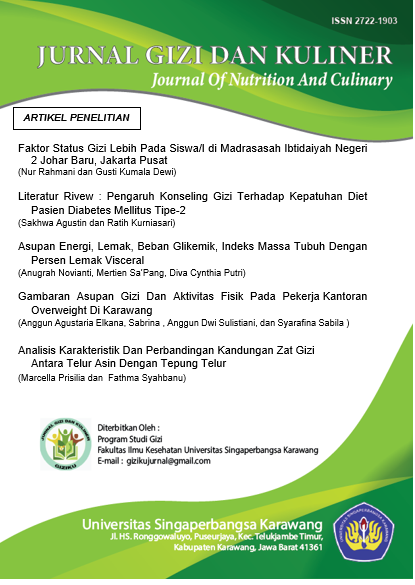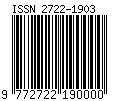Analisis Karakteristik Dan Perbandingan Kandungan Zat Gizi Antara Telur Asin Dengan Tepung Telur
DOI:
https://doi.org/10.35706/giziku.v4i1.9669Abstract
One of the animal products used as a source of high nutrition is the egg. Highly nutritious foods are usually perishable and spoil quickly. One of the latest methods of egg preservation is egg drying to keep eggs fresh. This method works by removing enough water from the egg to prevent the growth of microorganisms and retard the rate of chemical reactions. This review aims to study the characteristics and nutritional value comparison of salted eggs and egg flour. A good salted egg is an egg that has a non-cracked shell, a chewy texture, and a golden and oily yolk. As for egg flour, it is one that has the same functional and physicochemical properties as fresh eggs. Egg meal has a higher nutritional value for protein, carbohydrates, and fat compared to salted eggs. Egg meal also has a lower moisture content than salted eggs, which can extend the shelf life of the product. The characteristics and nutritional value of egg flour provide maximum results, both for raw material products and as food additives.
Keywords: Egg flour, Preservation, Salted egg
Downloads
Downloads
Published
How to Cite
Issue
Section
License
Copyright (c) 2023 The Journal of Nutrition and Culinary

This work is licensed under a Creative Commons Attribution-NonCommercial-ShareAlike 4.0 International License.











